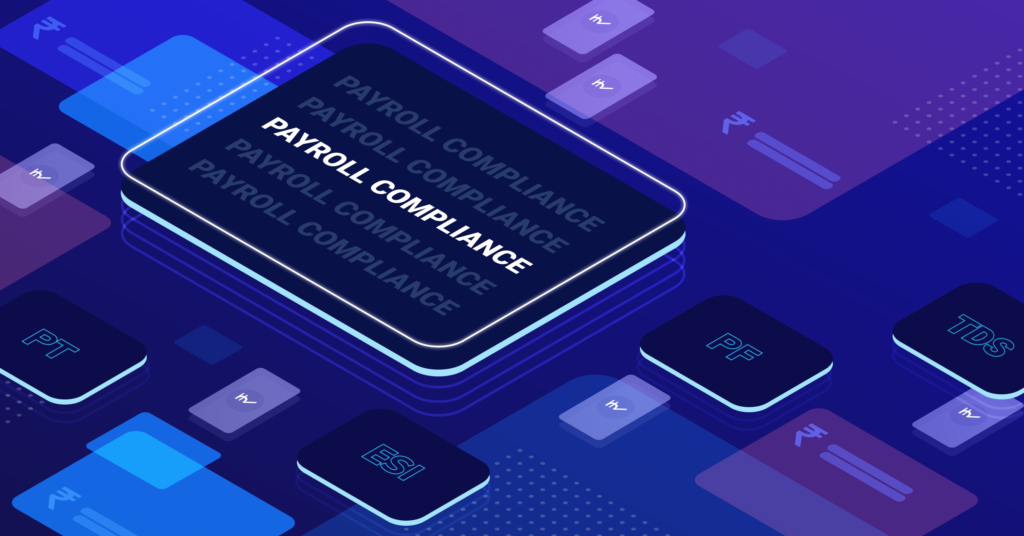Understanding the Importance of Payroll Compliance for Business

In the fast-paced world of business, payroll compliance might not always be at the forefront of every entrepreneur's mind. However, ensuring payroll compliance is not just a regulatory requirement—it's a cornerstone of maintaining employee trust and safeguarding your business from legal complications. This blog post will delve into why payroll compliance matters, the risks of non-compliance, and actionable steps businesses can take to stay compliant.
What is Payroll Compliance?
Payroll compliance refers to the adherence to federal, state, and local laws and regulations governing employee compensation, tax withholdings, and reporting. It encompasses:
Accurate calculation and distribution of employee wages.
Proper withholding and remittance of payroll taxes.
Compliance with labor laws, including overtime, minimum wage, and benefits regulations.
Timely submission of required payroll reports to relevant authorities.
Failure to meet these obligations can lead to severe penalties, reputational damage, and loss of employee morale.
Why is Payroll Compliance Crucial for Businesses?
1. Avoiding Legal Penalties
Non-compliance with payroll regulations can result in hefty fines and legal consequences. For instance:
The Internal Revenue Service (IRS) imposes fines for incorrect tax filings or late submissions.
Violating labor laws can lead to lawsuits, which can be both costly and time-consuming.
2. Building Employee Trust
Employees expect their paychecks to be accurate and timely. Errors in payroll can lead to dissatisfaction and high turnover rates. By maintaining compliance, businesses demonstrate professionalism and reliability.
3. Protecting Business Reputation
Word spreads quickly in today's interconnected world. Payroll mistakes or legal battles can tarnish your brand's image, potentially affecting customer trust and investor confidence.
4. Ensuring Financial Stability
Non-compliance can disrupt cash flow and lead to unexpected expenses. By adhering to payroll laws, businesses can better plan and allocate their financial resources.
Key Components of Payroll Compliance
1. Employee Classification
Correctly classifying employees as full-time, part-time, or independent contractors is critical. Misclassification can result in:
Back wages owed to employees.
Penalties for unpaid taxes.
2. Tax Withholdings
Employers must withhold the appropriate amount of federal, state, and local taxes. This includes:
Federal income tax.
Social Security and Medicare taxes.
State unemployment insurance (SUI) taxes.
3. Record-Keeping
Maintaining accurate and up-to-date payroll records is not only a best practice but also a legal requirement. Essential records include:
Timesheets and pay stubs.
Tax forms (e.g., W-2, 1099).
Benefits documentation.
4. Compliance with Labor Laws
Ensure adherence to laws like:
The Fair Labor Standards Act (FLSA), which governs minimum wage and overtime pay.
Family and Medical Leave Act (FMLA) requirements.
Equal employment opportunity regulations.
Risks of Non-Compliance
Ignoring payroll compliance can have far-reaching consequences:
Fines and Penalties: Regulatory agencies impose steep fines for violations, ranging from tax underpayment to record-keeping deficiencies.
Employee Lawsuits: Disgruntled employees may file lawsuits over unpaid wages or benefits.
Audits: Non-compliance increases the likelihood of audits, which can disrupt business operations.
Reputational Damage: Negative publicity stemming from compliance issues can erode customer and employee loyalty.
Best Practices to Ensure Payroll Compliance
1. Stay Informed About Regulations
Laws and regulations frequently change. Subscribe to updates from:
The Department of Labor (DOL).
Internal Revenue Service (IRS).
State labor boards.
2. Invest in Payroll Software
Leverage modern payroll tools to streamline compliance efforts. Features to look for include:
Automated tax calculations and filings.
Integration with time-tracking systems.
Real-time compliance updates.
3. Conduct Regular Audits
Periodic audits can help identify and rectify errors before they escalate. Focus on:
Wage calculations.
Tax filings.
Benefits administration.
4. Train HR and Payroll Staff
Ensure that your HR and payroll teams are well-versed in compliance requirements. Provide ongoing training to keep them updated on legal changes.
5. Consult with Experts
Engage payroll consultants or legal advisors to review your compliance processes and provide guidance tailored to your industry and location.
Tools and Resources for Payroll Compliance
Payroll Software: Popular options like Gusto, ADP, and Paychex offer robust compliance features.
Government Websites: Regularly check resources like IRS.gov and the Department of Labor for updates.
Industry Associations: Join organizations like the American Payroll Association (APA) for training and resources.
Internal and External Links
Internal Link: Check out our guide on "Top Payroll Software for Small Businesses".
External Link: Learn more about federal payroll laws from the U.S. Department of Labor.
Conclusion
Payroll compliance is more than just a legal obligation; it's a fundamental part of running a successful business. By prioritizing compliance, businesses can avoid costly penalties, build employee trust, and maintain a stellar reputation.
Taking proactive measures from investing in payroll software to consulting with experts ensures that your company stays ahead of the curve in an ever-evolving regulatory landscape.
Ready to simplify payroll compliance? schedule a demo with our payroll experts today!